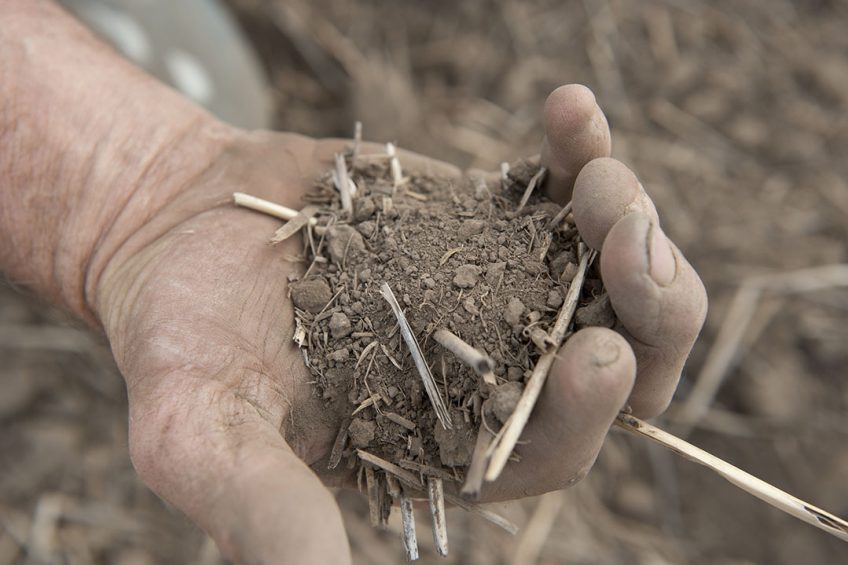Agri and food production causing huge biodiversity loss

Major reform of global food systems is urgently needed to address natural habitat loss, according to a new report.
Produced by the UK think-tank Chatham House and backed by the United Nations Environment Programme (UNEP) and Compassion in World Farming, the study says that agriculture is threatening 86% of the 28,000+ plant and animal species known to be at risk of extinction.
Report author Professor Tim Benton highlighted 3 key levers for the creation of a more sustainable food system:
- A re-focus on growing the right food in the right amounts: making the food system efficient via people consuming healthy diets, including plant-based foods, that are sustainably produced without waste.
He highlighted how different foods have different carbon footprints – 1kg of beef produces 25 times the greenhouses gases produced by 1kg of tofu and requires 75 times more land to produce. Focusing only on growing even more food to feed the plant is detrimental to human health, biodiversity, and climate change
- More land needs to be protected and set aside for nature. The protection of land from conversion or exploitation is the most effective way to preserve biodiversity, so it is vital to avoid converting land for agriculture. Restoring native ecosystems on spared agricultural land offers the opportunity to increase biodiversity.
- A need to farm in a more nature-friendly, biodiversity-supporting way, limiting the use of inputs and replacing monoculture with polyculture farming practices.
From good to bad
Speaking at a global webinar to launch the report, Prof Benton said that since the end of World War 2, the drive to intensify agriculture to make food more available and cheaper to feed the growing population had worked, but it had now led to huge amounts of waste, obesity, and poor health. Intensification of farming was leading to soil degradation, yield declines, loss of rain forest for soya and palm oil production, and rising greenhouse gas emissions. “We must stop arguing that we have to subsidise the food system in the name of the poor and instead deal with the poor by bringing them out of poverty,” he argued.
 Poultry farms are havens for wildlife
Poultry farms are havens for wildlife
Trees planted on poultry farms in the UK are providing considerable benefits for biodiversity as well as improving the health and welfare of free-range hens and providing a price premium for farmers.
Susan Gardiner, UNEP Ecosystem Services director, said global food systems were not just driving biodiversity loss but also raising the risk of spreading zoonotic diseases, like Covid-19, around the globe: “It is reducing the resilience of our ecosystems and cutting off the life supporting services they provide.” She said the cheaper food paradigm of the past few decades had not considered biodiversity loss and poor diets had led to growing health impacts, such as diabetes, heart disease, and obesity: “Healthier diets could increase global resistance to Covid-19,” she added.
Philip Lymbery, Compassion in World Farming chief executive officer, said the destruction of forests and ripping out of hedges, coupled with the intensification of agriculture and the use of artificial fertilisers, chemical pesticides and factory farmed animals needed to be overhauled. “40% of global grain grown in the word is now fed to factory farmed animals. If that were fed to people, it could sustain 4bn of us. Yet as animal feed, much of its value is lost.”
 Sustainability and Welfare
Sustainability and Welfare
Going hand-in-hand with sustainable livestock production is a focus on welfare and behavioural physiology of the animals.
Way forward
Calling for a restorative, regenerative agro-ecological revolution, he highlighted the rotational practice of pasture-raised chicken following sheep and cattle to produce a rich mixture of life: “Farming in harmony with nature and animals, combined with eating more plants and less meat, will be seen as the healthy way forward.”
Dr Jane Goodall, UN ambassador and founder of the Jane Goodall Institute, said farming faced an absolute crisis and was reaching a point of no return: “Agriculture is having a striking effect on biodiversity loss.” She added that a lot of the issues were down to ignorance, saying people needed to understand the relationship between the food they ate and climate change and biodiversity.
The report followed the publication of an independent global review on the Economics of Biodiversity by Professor Sir Partha Dasgupta, which supported the case for international governments to assign a monetary, ecosystem-services value to natural resources, such as healthy soils and forests. This would allow businesses to calculate the “true costs” of their decisions.
The Chatham House report can be found here.












